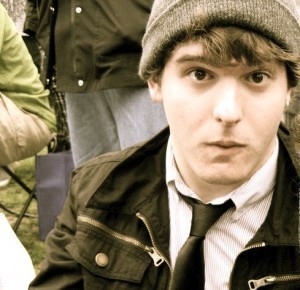The Problem with “Religious Privilege”
Atheists in America face some measure of discrimination, and we want a way to talk about that discrimination so that it’s taken seriously. But our approach thus far is setting us back, and may even be putting us in conflict with identity groups — indeed, religious identities — who could and ought to be alongside us in a struggle towards pluralistic understanding.
Many nontheistic writers and activists have selected the theory of “privilege” as a model of the normalized religious identity in America, and to describe their own disadvantage as American atheists. Both The Friendly Atheist and The Atheist Experience Blog have taken this approach. In a piece titled ”Religious Privilege and Citizenship,” Ed Brayton discussed how nonreligious folks are disadvantaged by U.S. citizenship tests which request that you provide a “religious objection” to any question about taking up arms to defend the country.
Sam Killermann at Its Pronounced Metrosexual recently compiled a popular list of what they deemed “examples of Christian Privilege” in America, writing:
“If you identify as Christian, there’s a good chance you’ve never thought about these things… try and be more cognizant of these items and you’ll start to realize how much work we have to do to make the United States a place that is truly safe and accessible for folks of all belief systems.” The list included items like the freedom “to worship without violence or threats,” “politicians responsible for your governance are probably members of your faith,” and “your faith is accepted/supported at your workplace.”
But absent in these notions of privilege is a dimension of normalization. Privilege, as a mode of describing social inequity, is rooted in the normalization of oppression, and the solidification of distance between classes. So in some ways, this language might thus seem intuitive, that nonreligious Americans face discrimination in a variety of walks of life, and therefore there should be some identity who enjoys a social security and mobility at their expense. However, not all social disadvantages constitute a notion of “privilege” as the term is typically applied in critical theory–and in fact, our current discourse around “religious privilege” or even “Christian privilege” does quite a disservice to a variety of religious identities that we should align ourselves with in our resistance to discrimination.
Read the full piece at Huffington Post Religion!
Walker Bristol is a nontheist Quaker living in Somerville, Massachusetts. A rising senior at Tufts University reading religion and philosophy, he covers social activism and class inequality in the Tufts Daily and has organized in movements promoting religious diversity, sexual assault awareness and prevention, and worker’s rights. Formerly, he was the Communications Coordinator at Foundation Beyond Belief and the president of the Tufts Freethought Society. He tweets at @WalkerBristol.




